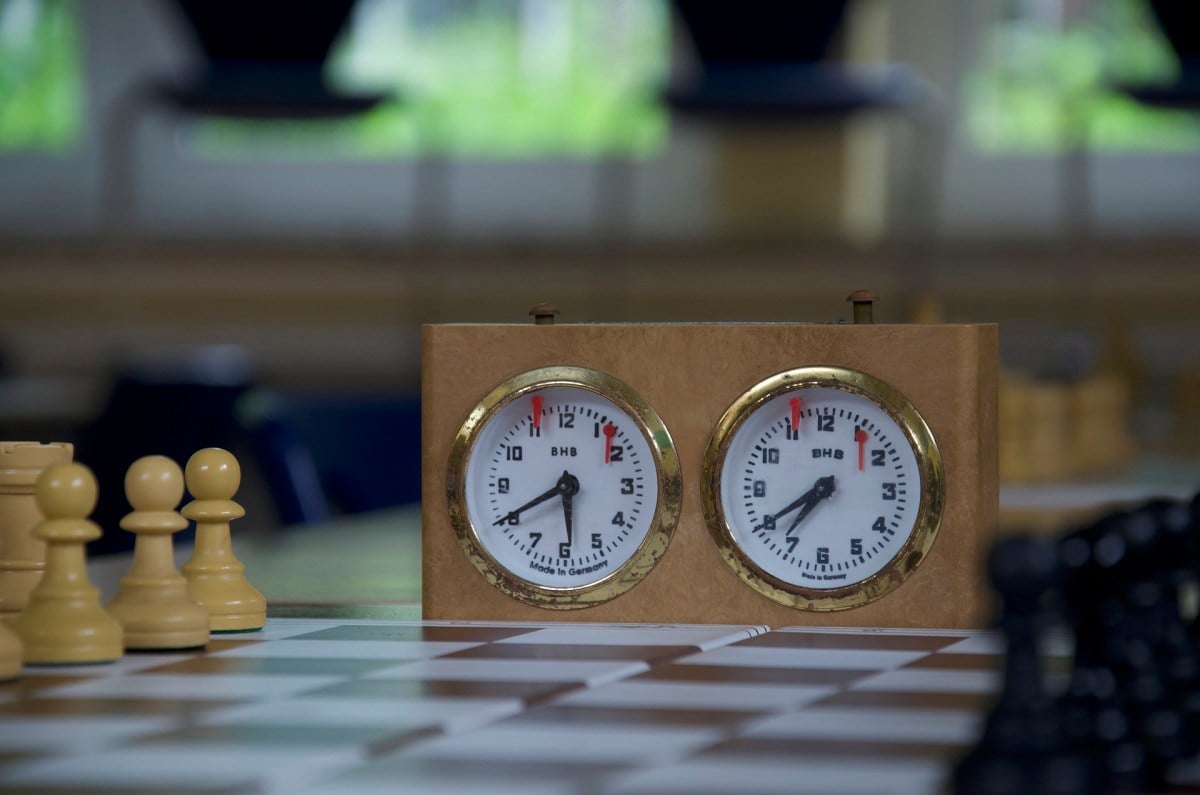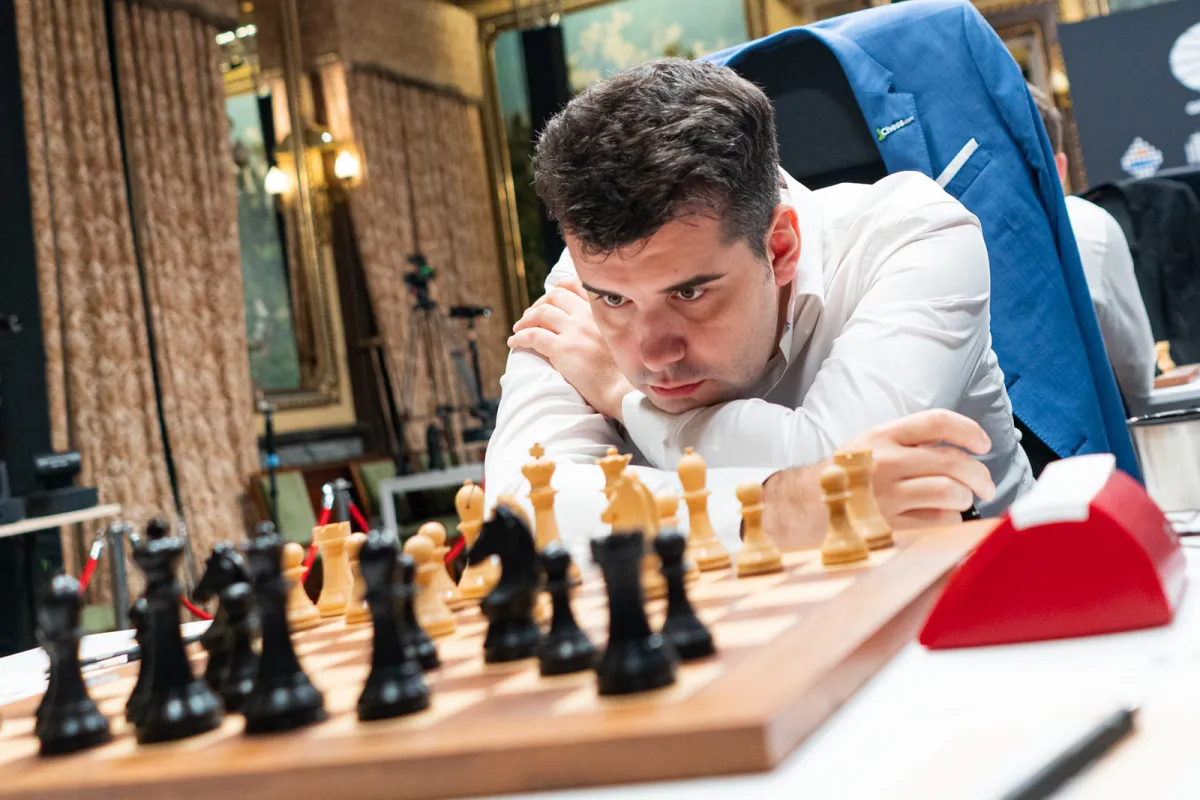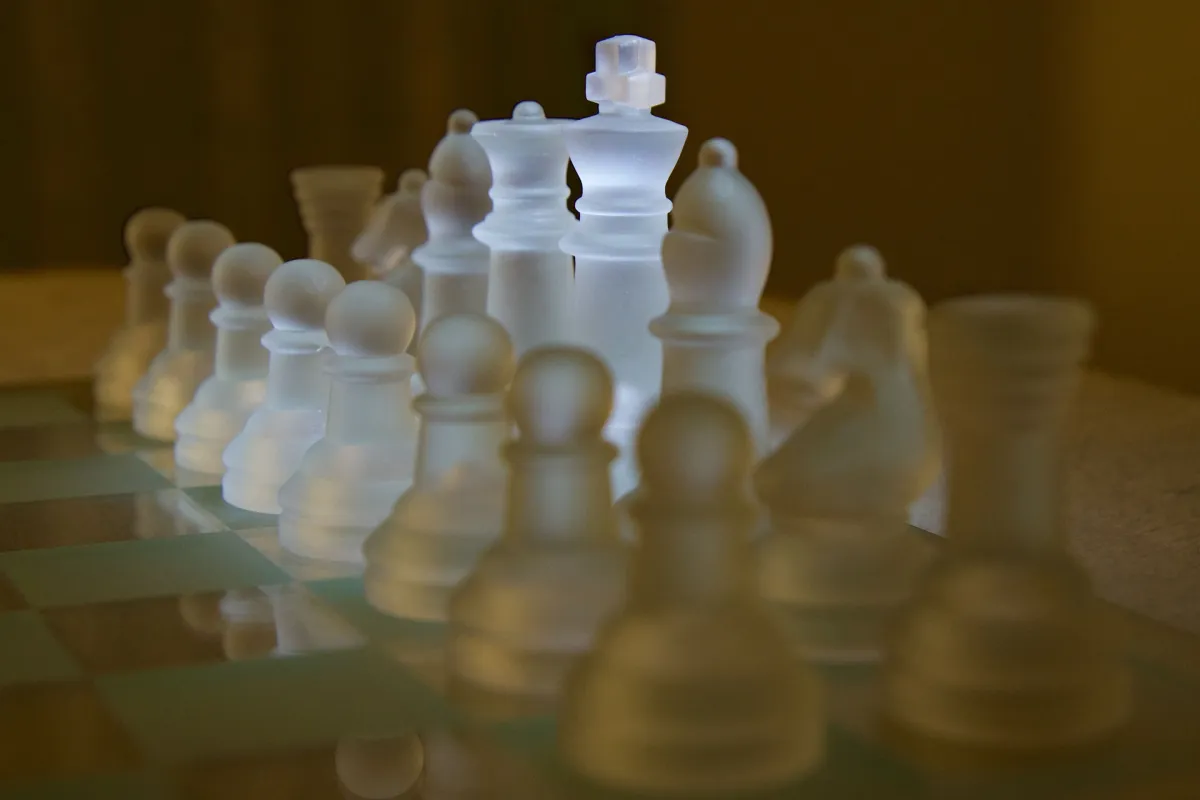Flagging is the term for winning or drawing by your opponent running out of time in a chess game, which is an automatic loss. It owes its name to the design of old mechanical chess clocks, but it is still a concern in the modern game. Though games rarely come all the way down to flagging, poor time management can be a huge issue on all levels of play.
Back before digital chess clocks became the norm, the analog designs featured a little plastic lid at the 12-hour mark, which would get lifted by the minute hand as time continued to tick down. If the player ran out entirely, the flag would fall – hence the term “flagged”. The name stuck even after the clock designs – and in many cases, even the way play time is administered during chess matches – has changed over the years.
How to avoid flagging in chess
Time is a resource, just like everything else in the game of chess. It is important to learn how to keep up on the clock with your opponent, and to know which are the critical times to calculate in a game. Early on in a tame opening, where you have five or six viable continuations, it is a big mistake to waste a big chunk of your time for little to no advantage. However, when the game gets sharp, and you could potentially win a piece or more if you properly think through the possibilities, that is the time to invest your, well, time.
Mikhail Botvinnik, the sixth world chess champion, suggested that one should practice clock management playing by exclusively focusing on the time and with no regard for the quality of the moves until they can comfortably keep up with their opponents while also making the proper calculations.
In the fastest of formats, bullet and blitz, it can be a realistic strategy to play for flagging to save an otherwise lost position. It is up to your opponent to prove that they can convert the game with the time they have remaining!
If you continue to struggle with time trouble and flagging, consider playing with increment. This is the modern competitive standard: players get an extra couple seconds for each move made, so there are no situations where you flag in a completely winning position. Keep in mind that this works a little differently in offline chess—there are no pre-moves, and it takes a little time to physically make the move and to press the clock, so it’s more difficult to bank time in the faster formats.







Published: Dec 30, 2022 06:15 am